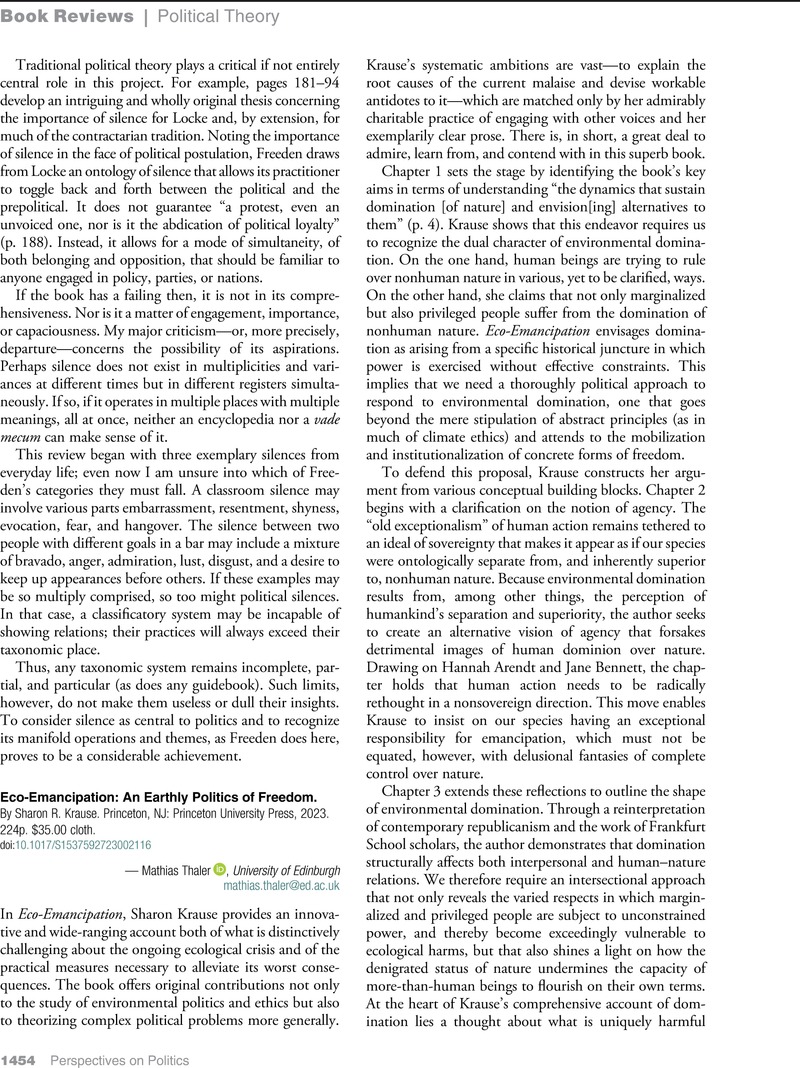No CrossRef data available.
Article contents
Eco-Emancipation: An Earthly Politics of Freedom. By Sharon R. Krause. Princeton, NJ: Princeton University Press, 2023. 224p. $35.00 cloth.
Review products
Eco-Emancipation: An Earthly Politics of Freedom. By Sharon R. Krause. Princeton, NJ: Princeton University Press, 2023. 224p. $35.00 cloth.
Published online by Cambridge University Press: 01 December 2023
Abstract
An abstract is not available for this content so a preview has been provided. Please use the Get access link above for information on how to access this content.

- Type
- Book Reviews: Political Theory
- Information
- Perspectives on Politics , Volume 21 , Issue 4: Special Section: Methods, Ethics, Motivations: Connecting the How and Why of Political Science , December 2023 , pp. 1454 - 1455
- Copyright
- © The Author(s), 2023. Published by Cambridge University Press on behalf of the American Political Science Association


